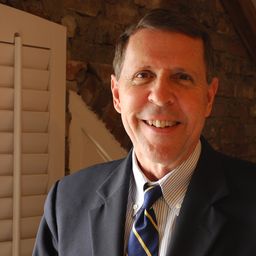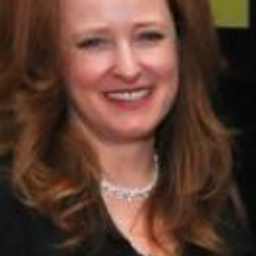
Amy is a Lecturer in History at the University of the Sunshine Coast. She specialises in heritage, architectural history, and colonial history (particularly British). She has a PhD, MSc (Res) and BA (Hons 1), as well as being an elected Fellow of the Society of Antiquaries Scotland and a Full International Member of ICOMOS.
Amy currently serves as the Secretariat Officer for the Association of Critical Heritage Studies (ACHS), as well as the Australia & New Zealand ACHS Chapter Coordinator. Amy is on the Editorial Board of the Society of Architectural Historians of Australia and New Zealand (SAHANZ) and is an Assistant Editor of the journal Cultural History.
Sessions auxquelles Dr Amy Clarke participe
Dimanche 5 Juin, 2016
Sessions auxquelles Dr Amy Clarke assiste
Vendredi 3 Juin, 2016
What does heritage change for tourism? | Le patrimoine, ça change quoi au tourisme? Ce débat veut interroger les relations entre le tourisme et le patrimoine et dépasser ainsi les idées reçues sur l'antagonisme entre le tourisme "corrupteur" et le patrimoine qui en serait la victime. Il s'agit donc de repenser le tourisme comme un réel acteur du patrimoine, de sa valorisation et de son appropriation, y compris par les populations locales. Cela présuppose, au p...
This forum will explore the current directions of critical heritage studies and what makes ACHS distinctive. Panel members will discuss what the term critical means to them, and what directions they would like to see develop in the future. To help develop an open dialogue, the session will also give considerable time to contributions from the audience.
Welcome addresses and cocktail, followed by the Concordia Signature Event "The Garden of the Grey Nuns". As the opening ceremony and cocktail take place in the former Grey Nuns' Motherhouse, recycled into campus residence and reading rooms by Concordia University, delegates will also have the possibility to discover the video Three Grey Nuns (3 minutes, by Ron Rudin and Phil Lichti. Three Grey Nuns recount their memories of communal life in the Grey Nun’s Motherhouse. Built...
Samedi 4 Juin, 2016
What if we changed our views on heritage? And if heritage has already changed? While, on the global scene, states maintain their leading role in the mobilization of social and territorial histories, on the local scale, regions, neighbourhoods and parishes have changed. Citizens and communities too: they latch on to heritage to express an unprecedented range of belongings that no law seems to be able to take measures to contain, often to the discontent of...
This session explores the different ways late modern states control and translate heritage, both their own and that of others. While modern governments have always played a role in the production and authorization of heritage, late modern states have unprecedented command over the heritage landscape. Coinciding with the postwar economic boom, globalization, and most recently neoliberalism, the state has come to dominate the most vital aspects of heritage, ranging from research (heritage produ...
How do borders shape heritage and its potential for change? Despite the growth of international connections in heritage studies, national, linguistic and disciplinary borders continue to structure scholarly and practical approaches to heritage. The aim of this session is therefore threefold. First we will address which borders limit our understanding of heritage today. What are the roles of linguistic, disciplinary, religious and national borders? Which methodologies are best suited to overco...
Most of what we experience as heritage emerges into conscious recognition through a complex mixture of political and ideological filters, including nationalism. In these processes, through a variety of devices (museums, scholarly research, consumer reproduction, etc.), dualistic classifications articulate a powerful hierarchy of value and significance. In particular, the tangible-intangible pair, given legitimacy by such international bodies as UNESCO, reproduces a selective ordering of cul...
Dimanche 5 Juin, 2016
This session explores the different ways late modern states control and translate heritage, both their own and that of others. While modern governments have always played a role in the production and authorization of heritage, late modern states have unprecedented command over the heritage landscape. Coinciding with the postwar economic boom, globalization, and most recently neoliberalism, the state has come to dominate the most vital aspects of heritage, ranging from research (heritage produ...
"What does heritage change?" is a multifaceted question to which the answer(s) are in primary respects related to real-life negotiations among different groups of citizens, cultures, races, ethnic groups, sexual identities, and social classes about received, official and/or widely accepted or accomodated intangible attributes, cultural traditions, historic monuments, buildings, and other transmitted or revived historical legacies. Heritage designated by and for whom, for what motivations, an...
Lundi 6 Juin, 2016
Le patrimoine fait aujourd’hui l’objet d’attentions autant que d’agressions et de destructions. Cela peut s’expliquer par les difficultés de son identification ou de sa conservation. Cela peut plus profondément s’expliquer parce que, dès le départ, il célébre un événement ou conserve une mémoire qui peut être ou devenir une source de dissenssions et de conflits politiques. Enfin, sa reconnaissance suscite des gains économiques pour les uns mais des pertes pour les autres. Mais peut-être...
Mardi 7 Juin, 2016
What is the future of the UK and what is the role of heritage in this shifting political landscape? How have debates on heritage in the UK changed since the influential critiques of Hewison and Wright in the 1980s? How can those engaged in Critical Heritage Studies in the UK negotiate the difficult relationship between academic critique and sector relevance? How do current debates in the UK relate to and differ from those in Western and non-Western contexts? This workshop will bring ...
The closing dinner of the conference, called “Pawâ” according to a French-Canadian tradition borrowed from the Native American lexicon, will be an opportunity to discover, in the heart of the Old Port of Montreal, an original culinary creation by the caterer Agnus Dei, from the renowned Maison Cartier-Besson in Montreal, leader in its field for its boundless creativity and event expertise. The dinner, in the form of stations, will offer delegates an exploration of Quebecois culinary heritage,...















